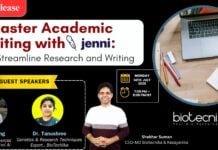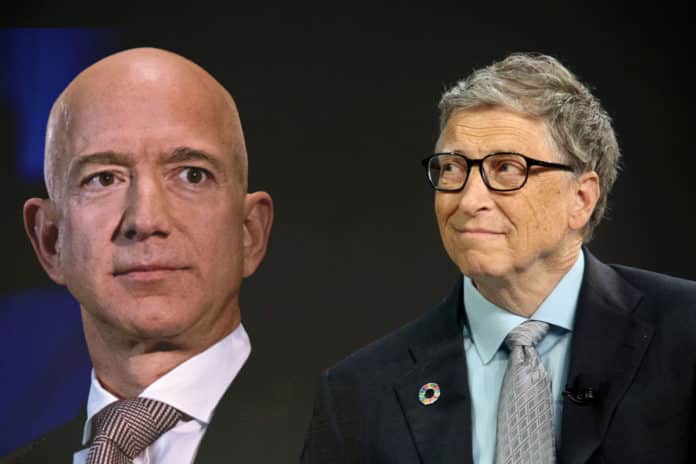Bill Gates & Jeff Bezos Fund $15 million To Alzheimer’s Diagnostics
The Bill & Melinda Gates Foundation and Day One Fund headed by Jeff Bezos’ have mutually collaborated to fund $15 million into the Diagnostics Accelerator – a project that is part of – Alzheimer’s Drug Discovery Foundation (ADDF). The mission of the Diagnostics Accelerator is to develop easy & inexpensive tests & solutions to treat Alzheimer’s disease.
On his site, GatesNotes, Bill Gates summarizes current advances in diagnosis Alzheimer’s, which is basically via a spinal tap or a brain scan–invasive and costly, respectively. And normally, people don’t look for diagnoses till they start showing symptoms. He writes, “It’s hard to overstate how significant finding a trusted, affordable, and easy-to-use diagnostic is for stopping Alzheimer’s disease”.
One promising area is the blood test. That was for quite a while not thought to be possible, but Randy Bateman, a researcher at Washington University in St. Louis, identified changes in Alzheimer’s patients’ blood in 2017 that has remained consistent and been verified by other researchers. Gates writes, “There is a fantastic chance a blood test will begin being used to recruit patients into Alzheimer’s drug trials within the next couple of years.”
Another approach to winning the battle against Alzheimer’s that Gates is excited about is -linguistic. Rhoda Au heads neuropsychology for the Framingham Heart Study, which has tracked the health of the residents of a single town for at least 70 decades. Au with others is working on”digital markers,” that might identify fluctuations in speech or writing habits which may behave as premature Alzheimer’s disease diagnostics.
A Part of the blog of Gates is regarding the ADDF’s Diagnostic Accelerator’s announcement today that it plans to tools for Alzheimer’s and related dementias. With financing from the Dolby family, Gates, co-founder Leonard Lauder, along with the Charles and Helen Schwab Foundation, the Diagnostics Accelerator app was created in July 2018.
Also, ADDF has recently made an announcement that funding for its Diagnostics Accelerator Digital Biomarker Initiative is now open to scientists and clinicians worldwide working in academic institutions, nonprofits, business partnerships, and biotechnology companies, as well as new start-ups. Funding priorities include augmented and virtual reality platforms, sensors, applications, tablet, and mobile apps home systems, and portables.
Gates wrote, “We do not know yet if the voice-based approach will work. It is still early in the research process, and we don’t even understand what changes in speech patterns we’re looking for yet. But I am excited about a potential future where identifying your risk of developing Alzheimer’s is as straightforward as a program on your phone which you could instruct to listen for warning signals on your speech.”
The recent collapse of Alzheimer’s medication aducanumab by Biogen and Tokyo-based Eisai underlines the problems of creating drugs to treat and prevent Alzheimer’s disease.
Howard Fillit, Founding Executive Director and Chief Science Officer of ADDF wrote at a blog, “I’d hope for this study as it had some promising effects in the prior phases of clinical development, demonstrating that the drug’hit its target’ and was able to remove beta-amyloid from the brain of patients. It was among the earliest clinical trials to ensure that every patient participating had plaques in their brains. The ADDF supported the initial biomarker approved to diagnose Alzheimer’s–the beta-amyloid PET scan–and we continue to invest in such essential tools.”
He points out that, though it would seem obvious that if you were conducting clinical trials to remove plaques in the brain you would want to guarantee the patients actually needed plaques in the mind, “that has not been the case until recently. Researchers have instead used tests that quantify’downstream’ effects like brain volumes on MRI and results like memory issues as standards to enroll patients. Studies have indicated that around 30 percent of those enrolled in clinical trials didn’t, in fact, have plaques and maybe didn’t have Alzheimer’s at all.”
This clearly states exactly how important it is to develop a test that is dependable, affordable and simple for Alzheimer’s, not only to possibly stop the illness but to faithfully develop drugs to deal with it.
Fillit wrote,”The Diagnostics Accelerator was created to deal with the absence of biomarkers to readily and more especially to screen and diagnose patients, phase disease development, track response to therapy, and improve the rigor and efficacy of clinical trials–crucial to the development of powerful drugs for the prevention and treatment of Alzheimer’s disease.”






























